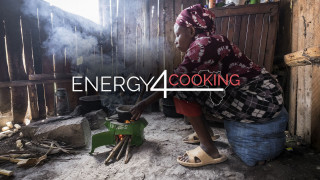Energy 4 Cooking
Most cooking in poorer households in Africa is still done using fuelwood, charcoal, and other biomass on inefficient fires and stoves. Poor people can spend up to 35% of their income on these inefficient energy forms.
Affordable and efficient cooking fuels and stoves are needed to reduce indoor air pollution, cut household energy cost and reduce time spent in gathering fuelwood. Current options for truly clean cooking, including LPG and electricity, are expensive, so reliance on traditional biomass for cooking will likely continue for decades to come. One way of mitigating the negative effects of cooking with biomass is the introduction of improved cookstoves in local markets.
Energy 4 Impact supports local cookstove producers and distributors by strengthening their business and technical skills, improving the design and performance of their stoves, providing access to finance and boosting the last-mile distribution of their products through market development activities.
We also partner with the Modern Energy Cooking Services (MECS), to investigate how to accelerate the transition from biomass to genuinely ‘clean’ cooking fuels such as renewable electricity, ethanol or LPG. With funding from the UK Aid (FCDO), we are conduct research to understand the types of investors supporting market development, the difficulties faced by clean cooking companies in raising capital, the strategies investors can adopt to fill the gaps and methods of boosting capital flow in the clean cooking sector.

